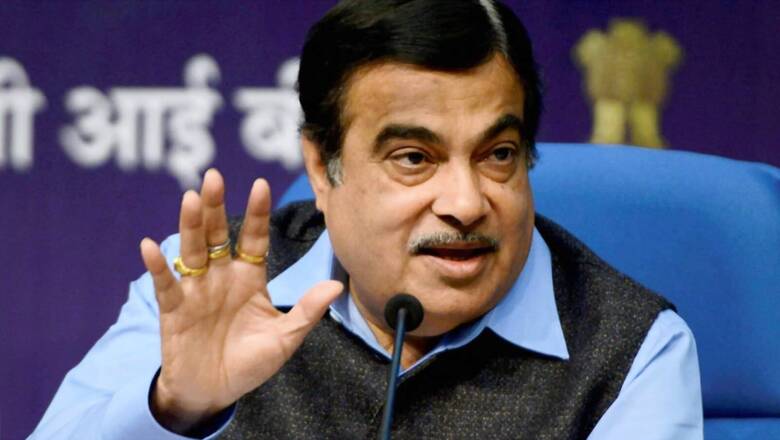
views
Union Road Transport and Highways Minister Nitin Gadkari on Tuesday emphasised on the roll-out of flex-fuel vehicles (FFVs) in the Indian auto market within a year. Gadkari also appealed to vehicle manufacturers to compulsorily provide a minimum of six airbags across all variants and segments of a vehicle.
“Met a delegation of CEOs of SIAM (Society of Indian Automobile Manufacturers) in New Delhi today. Emphasised on the need for a quick roll-out of Flex-Fuel Vehicles (FFVs) capable of running on 100% ethanol and gasoline into the Indian auto market within a year’s time," the minister said in a tweet. “In the interest of passenger safety, I have also appealed all private vehicle manufacturers to compulsorily provide a minimum of 6 airbags across all variants and segments of the vehicle," he added. According to an official statement, the minister met a delegation of CEOs from the Society of India Automobile Manufacturers (SIAM) comprising private, commercial and two-wheeler automobile manufacturers.
“The delegation presented an update of the auto industry’s status and requested for Deferment of emission-based regulations such as BS-6 phase 2, CAF Phase 2 among others such as OBD regulations for two-wheelers," the statement said. According to the statement, the minister congratulated the OEMs for performing well on the front of vehicle-engineering.
A few weeks back, Union minister Nitin Gadkari had said the government is looking for prospects about green hydrogen as a potential transport fuel, and added that whatever concessions it is offering for electric vehicles can be offered to green hydrogen also. Addressing a conference on ‘Hydrogen and Gas Based Mobility’, Gadkari also said that with the large solar, wind, hydro, and waste potential in India, the country can lead the world in green hydrogen production.
“We are also looking for prospects about green hydrogen as a potential transport fuel… Whatever concessions we are offering for electric vehicles, we can offer that concession for green hydrogen also," he said. The road transport and highways minister stressed that the government is committed for supporting green hydrogen and he will discuss the issue with the finance ministry and the Niti Aayog.
Also Watch:
Gadkari said green hydrogen could be an ideal power source for energy-intensive industries like refining, steel, cement, fertiliser, mining, and industrial heating. Stating that green hydrogen (H2) is made by splitting water (H2O) using renewable power, he said, “Over time, green hydrogen as an energy carrier can replace some of our energy imports." Gadkari noted that 70 per cent of green hydrogen production costs come from electricity costs, hence, surplus electricity from renewable energy sources can enhance green hydrogen production economics.
“We are working to bring about an integrated road map and create opportunities for alternative clean and green transport fuels like electricity, bio-CNG, LNG, ethanol, methanol, and hydrogen fuel cell," he said. Gadkari added that India should focus on hydrogen fuel cell electric vehicle technology exclusively for heavy long-distance trucks, buses, marine and aviation applications.
The hydrogen ecosystem can create a USD 20-billion green technology market in India and will enhance domestic job creation, he said, adding that India can be seen as a net exporter of hydrogen in the future to European, Southeast Asian countries, and Africa. He pointed out that piloting of H-CNG (hydrogen-blended with CNG) is also going on and it will help the transport sector learning to handle hydrogen.
The minister also said with government supportive policies and initiatives, “we are confident that India will even surpass the target of renewable energy of 450 gigawatt by 2030". Currently, India stands at the 5th position for overall renewable energy installed capacity.
He said India is one of the fastest-growing economy leading through sustainable and climate-neutral development. Gadkari reiterated India is committed to meeting the Paris Climate Agreement, where efforts are centered to reduce carbon emissions by 33 to 35 per cent by 2030.
“We are also committed to achieving net-zero carbon emissions by 2050," he said.
Read all the Latest News, Breaking News and Coronavirus News here.



















Comments
0 comment